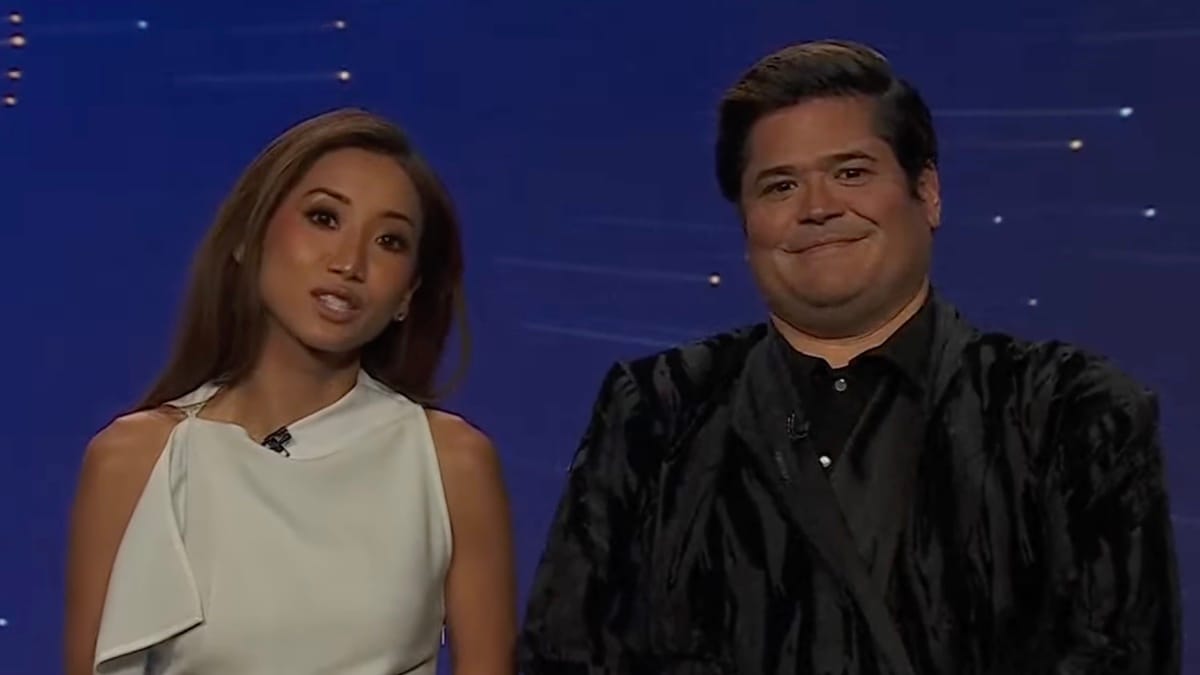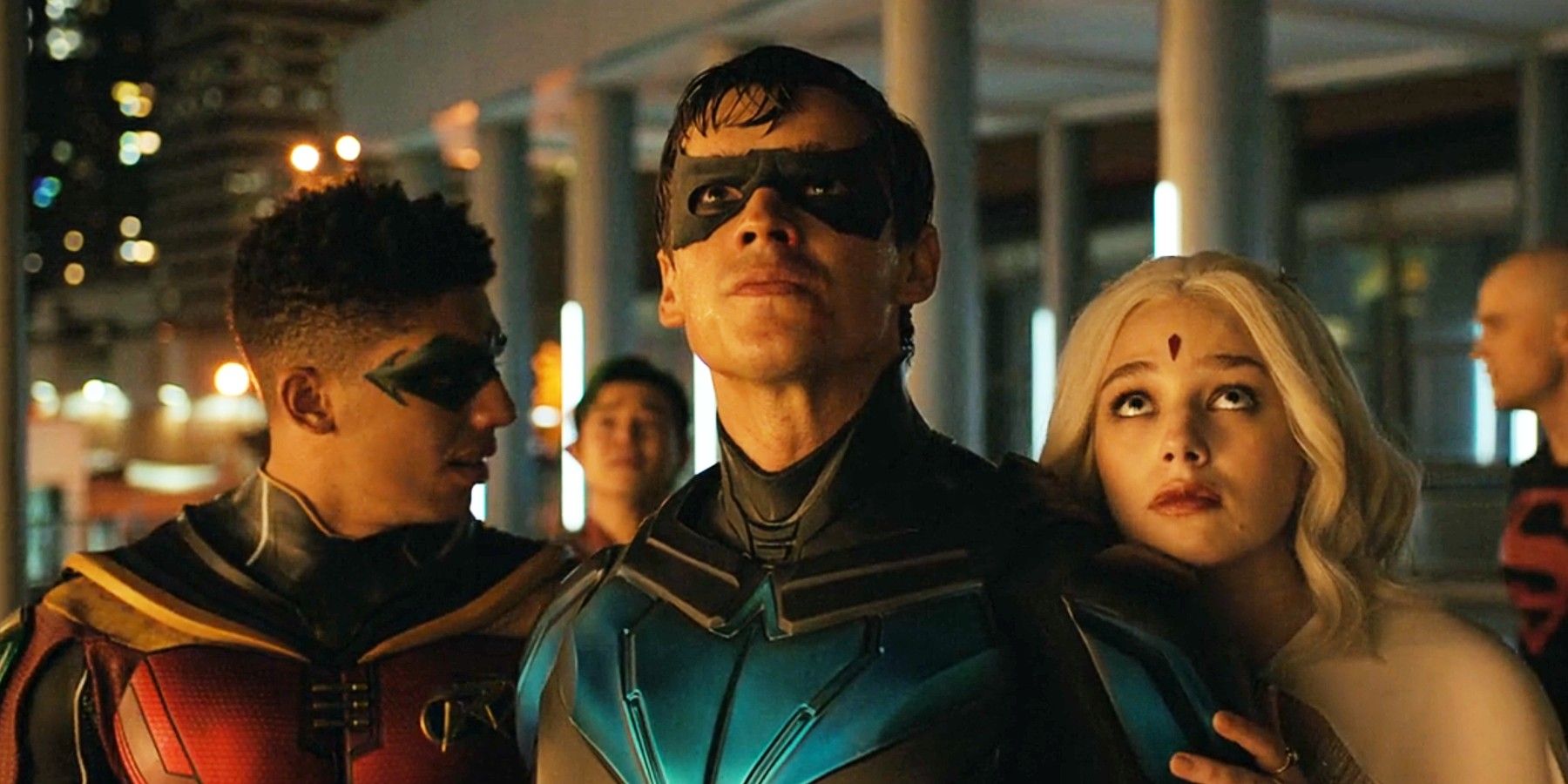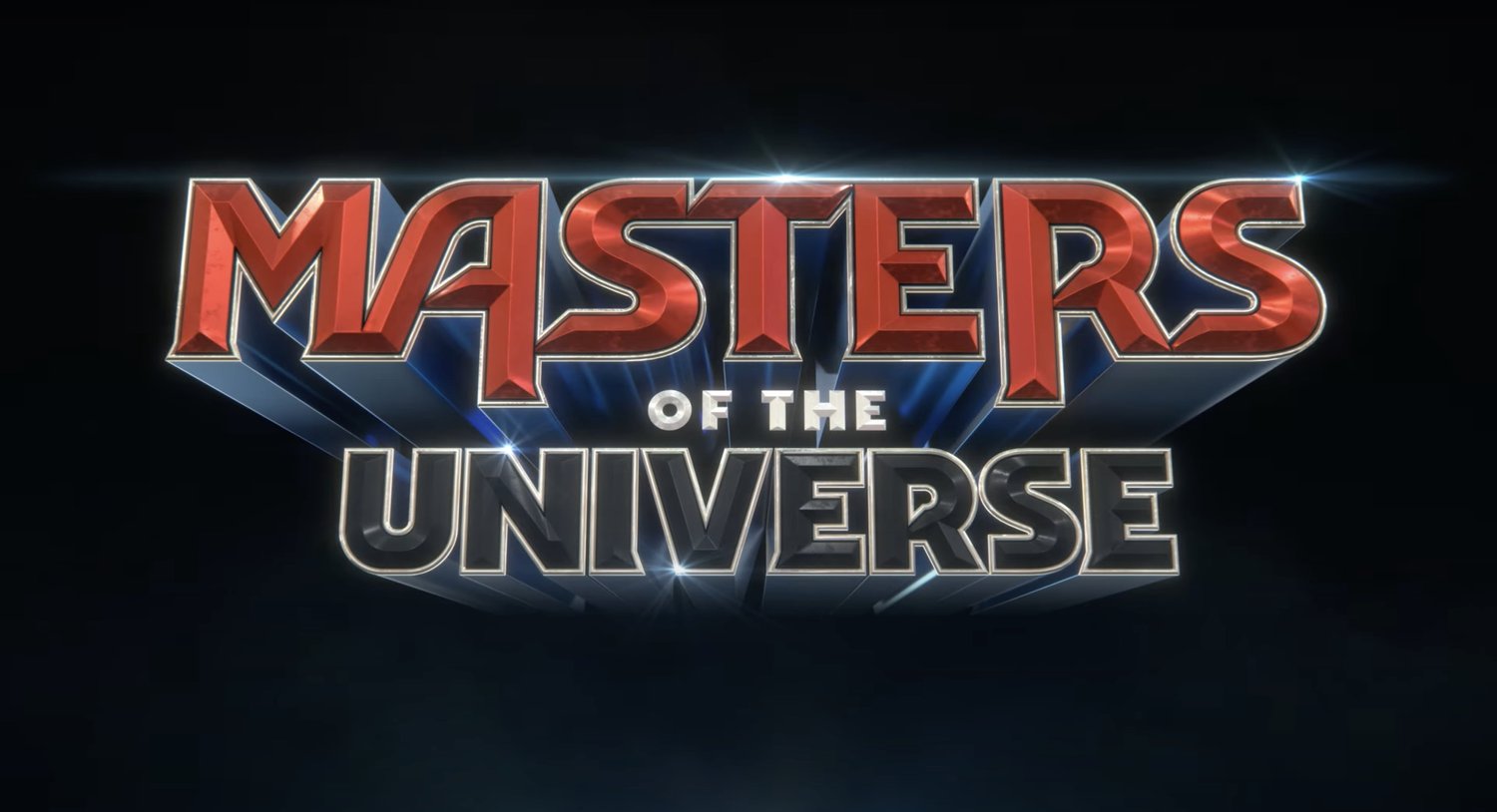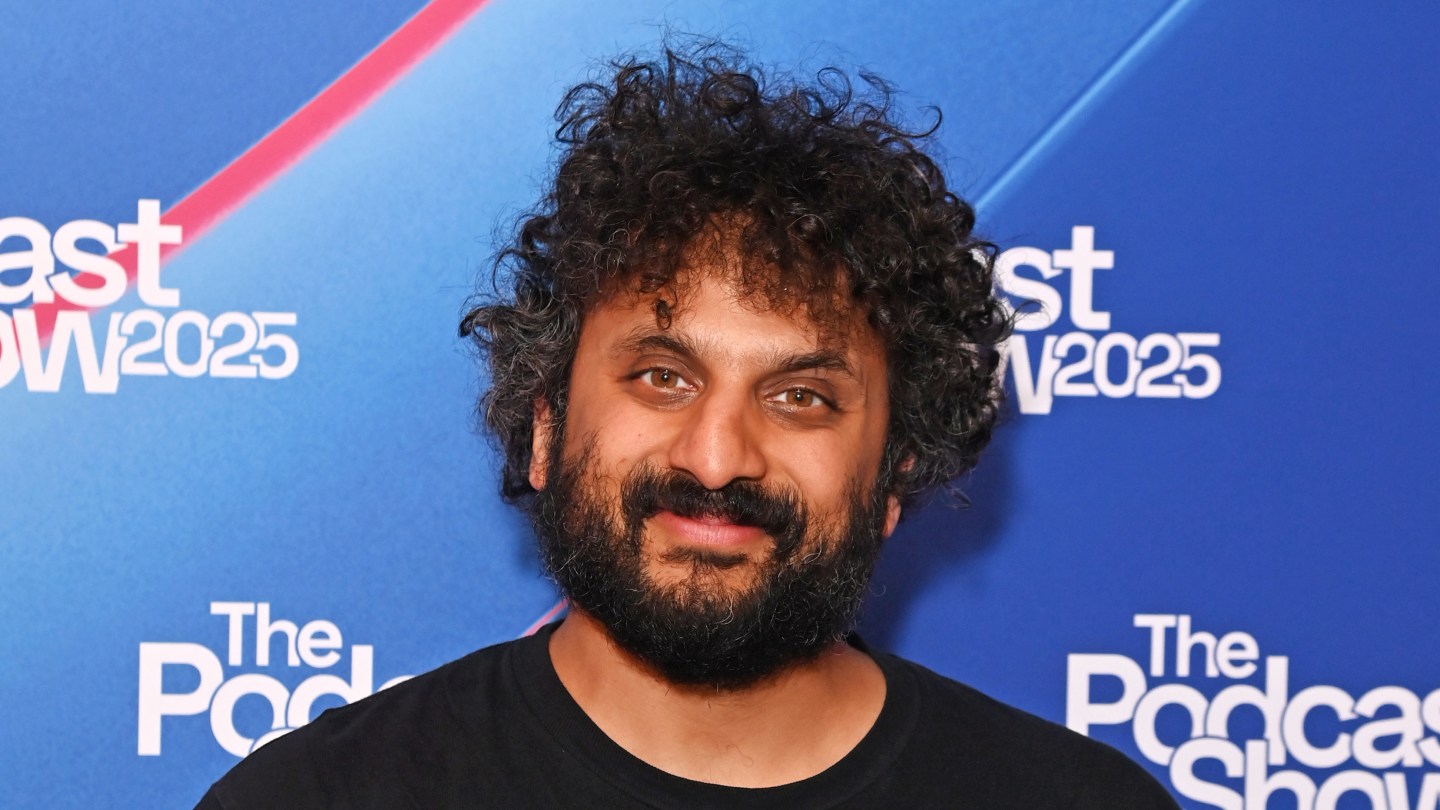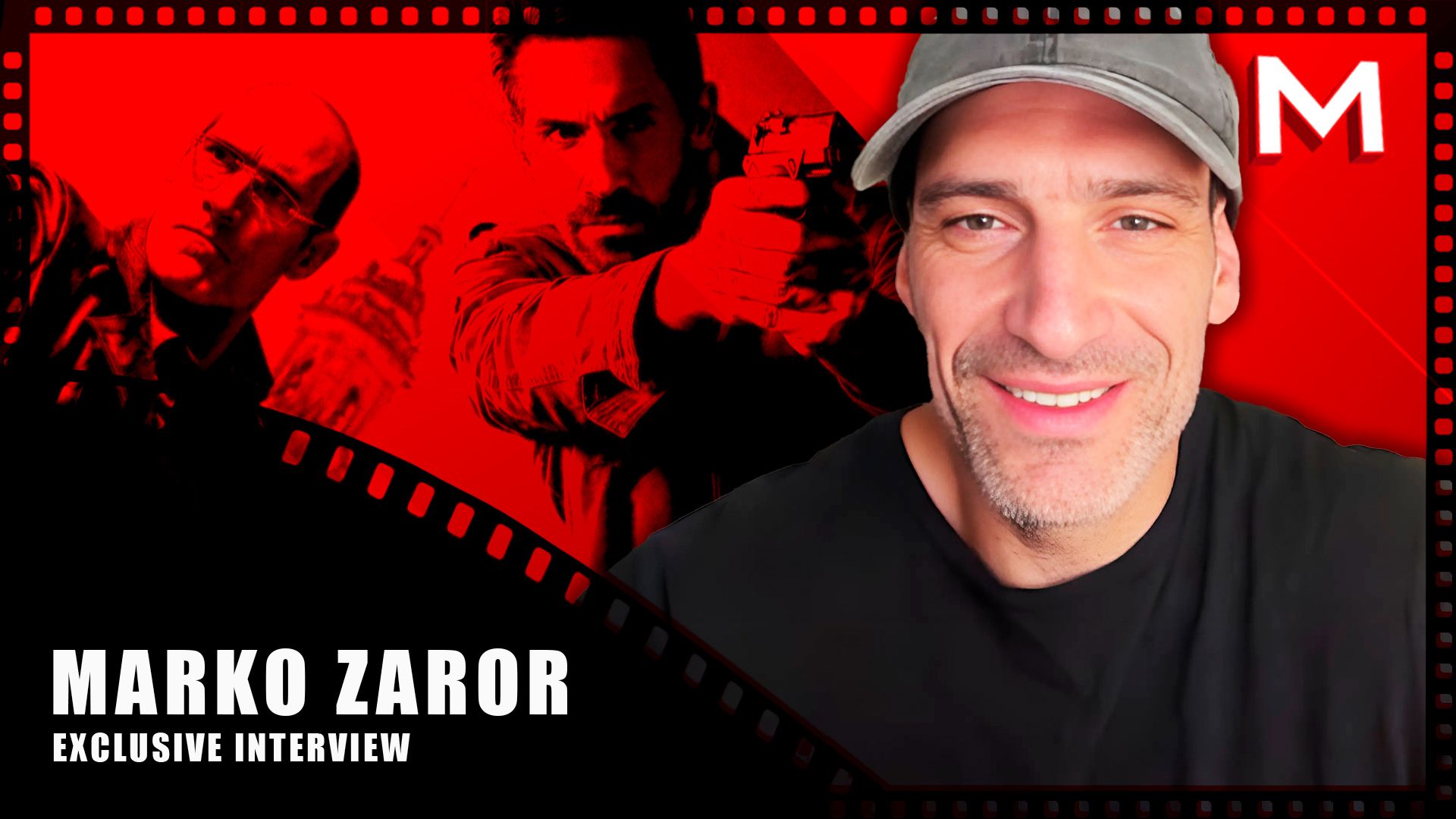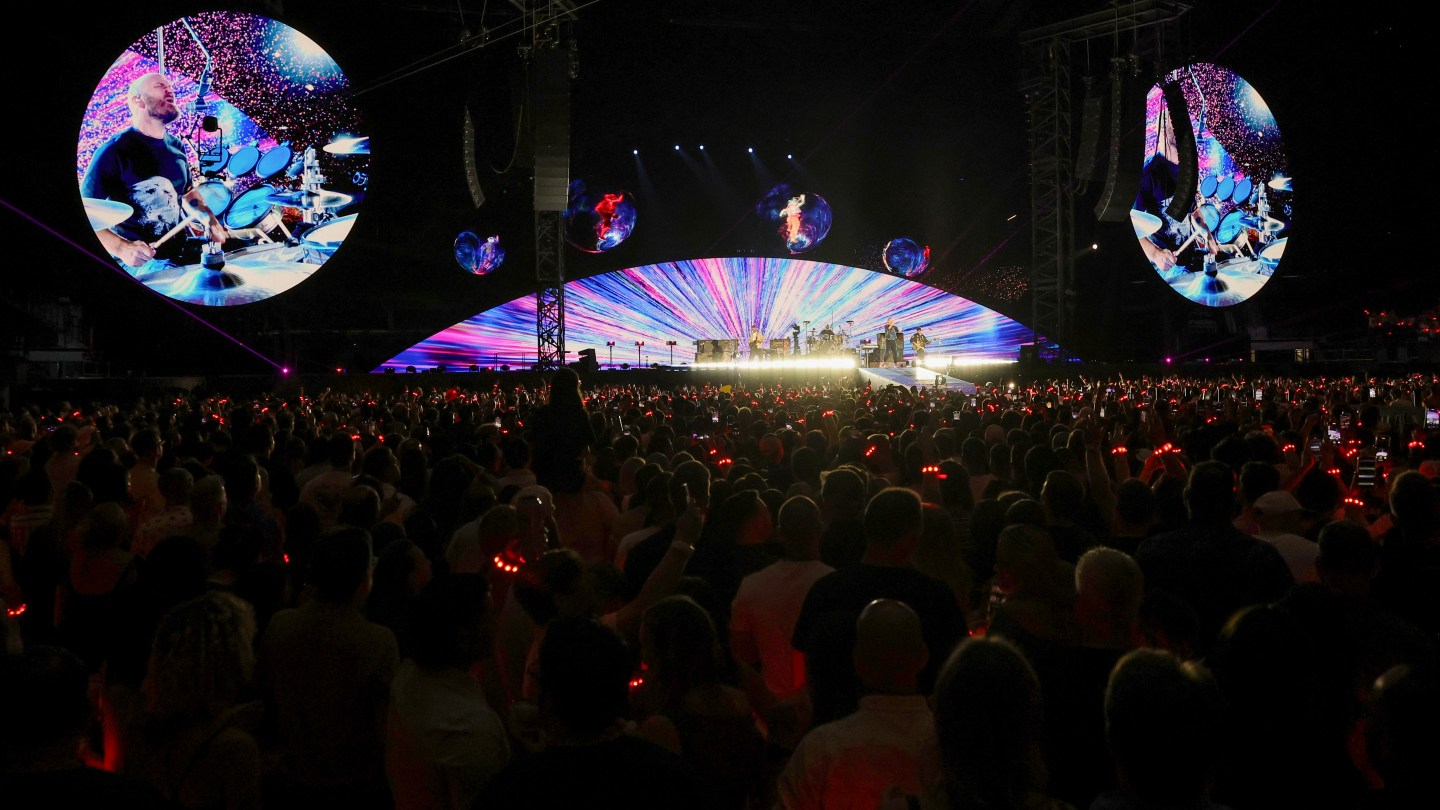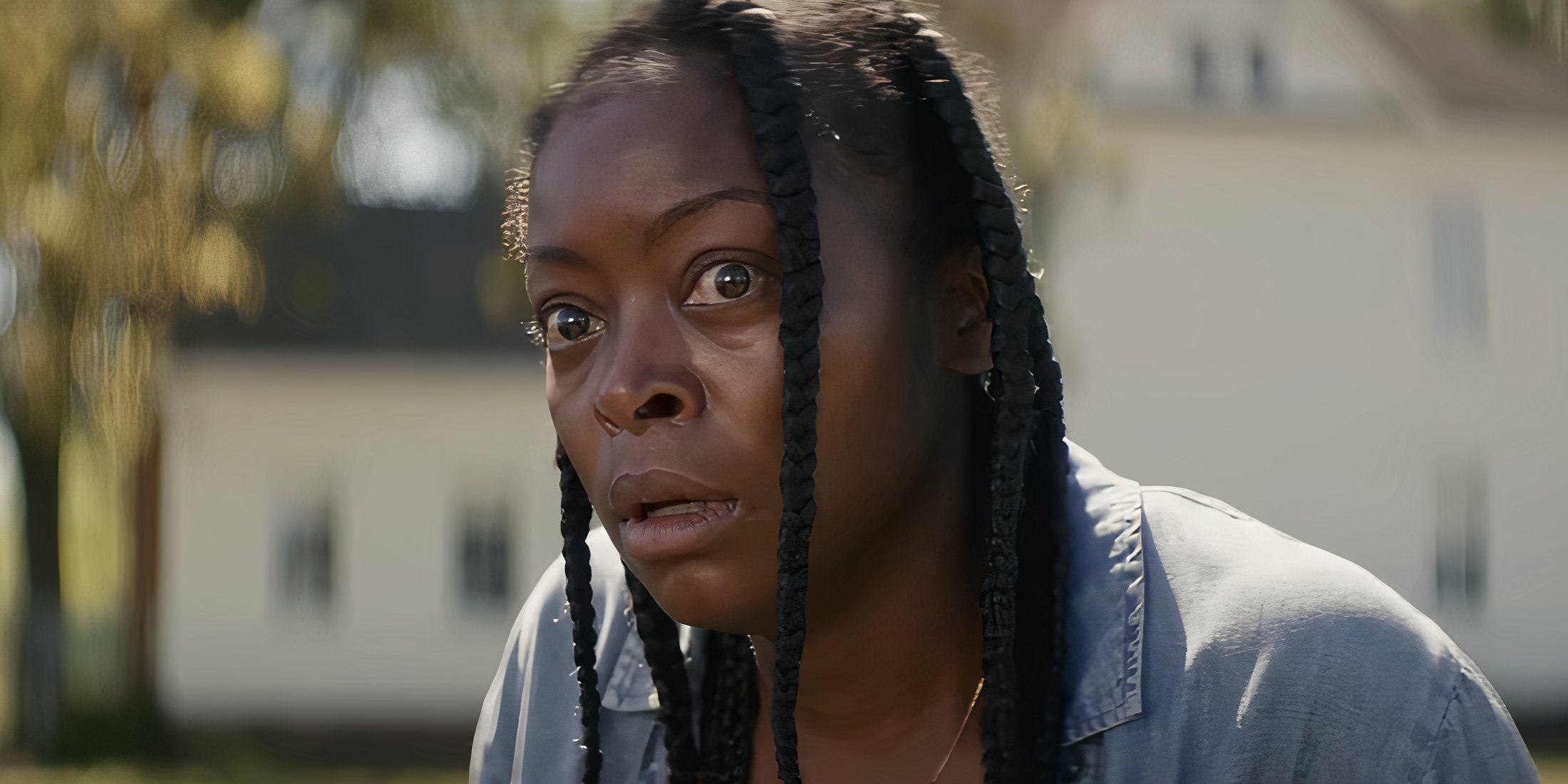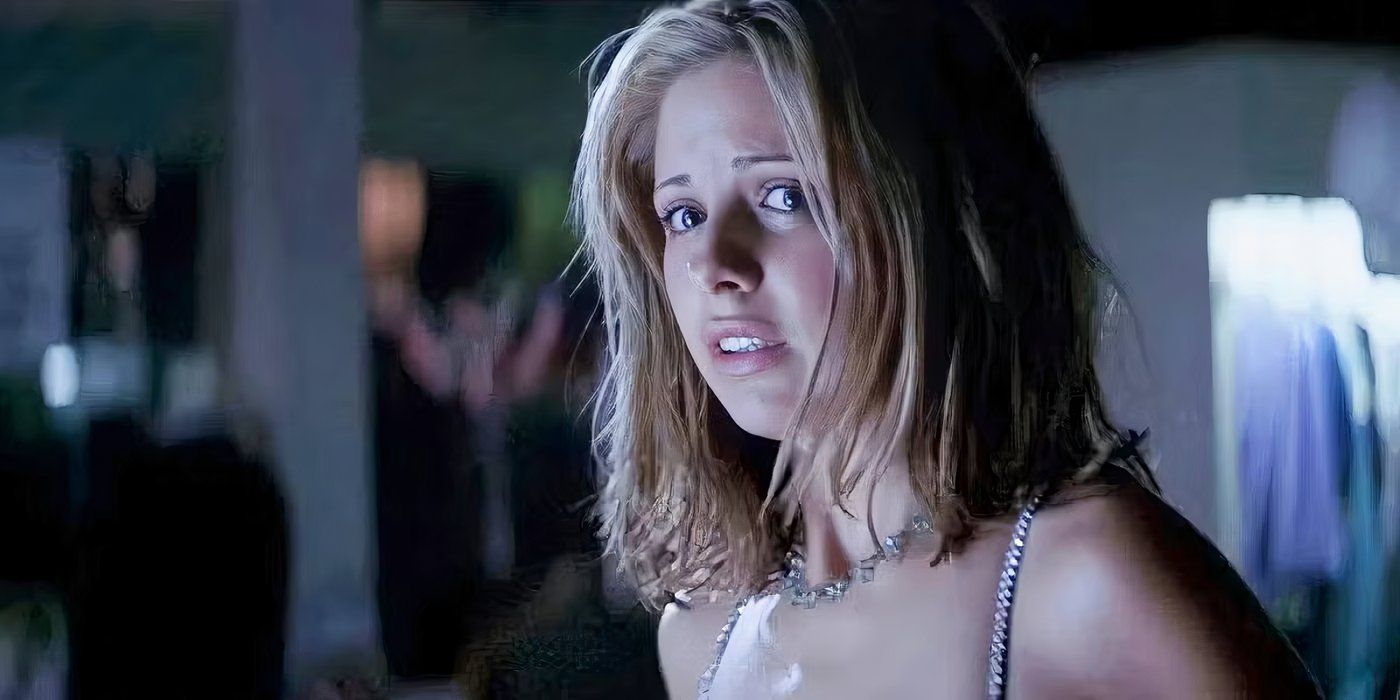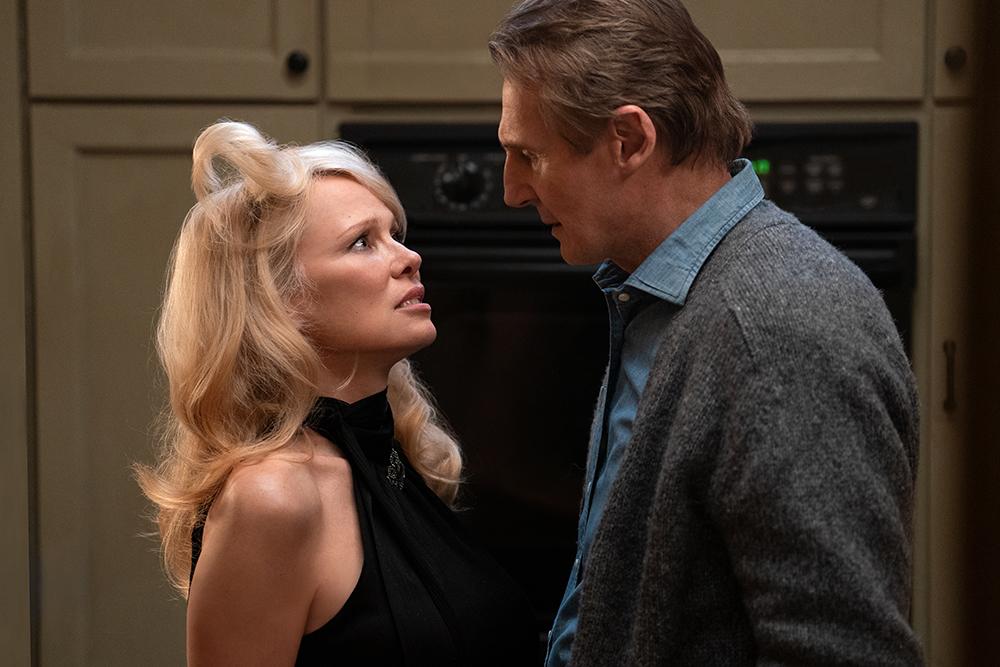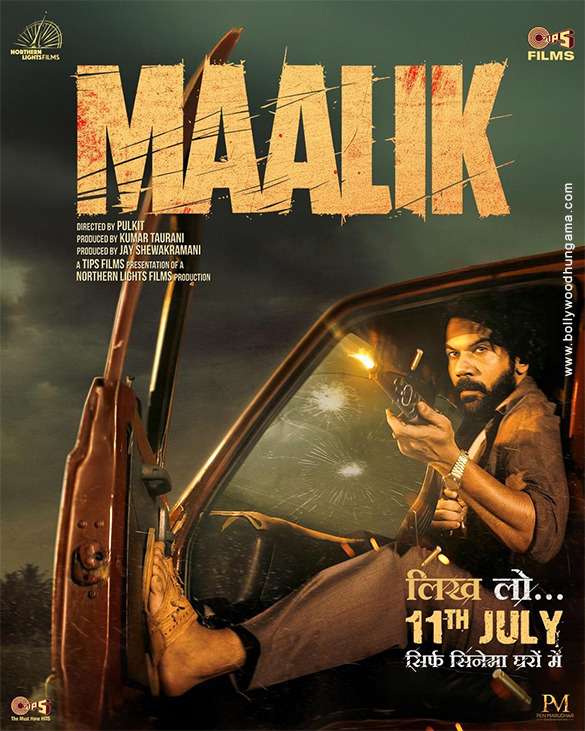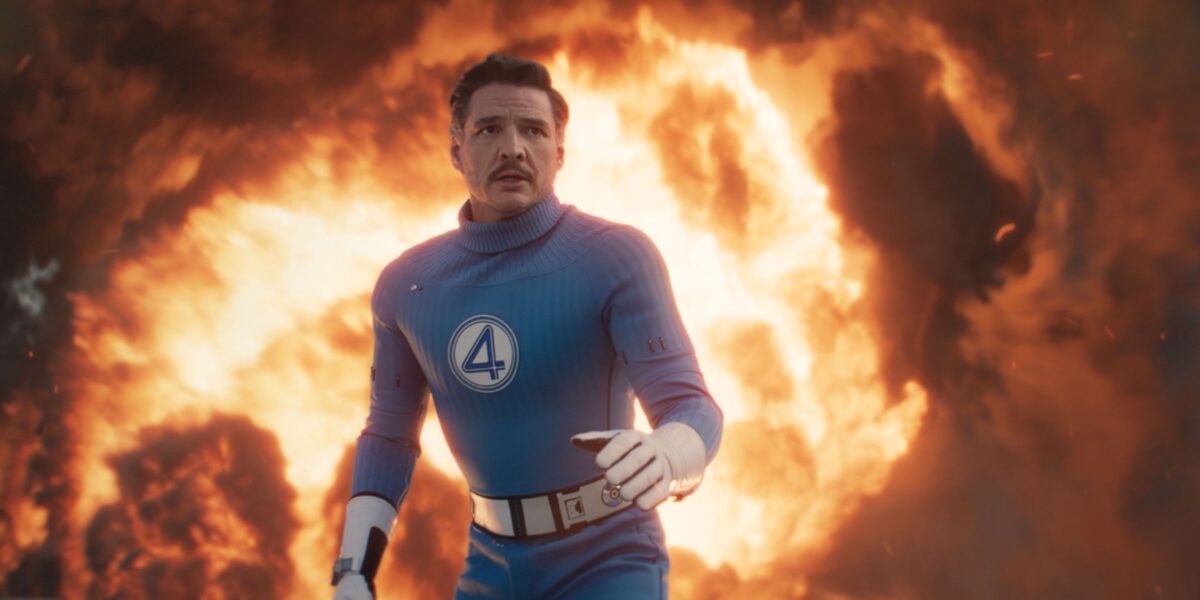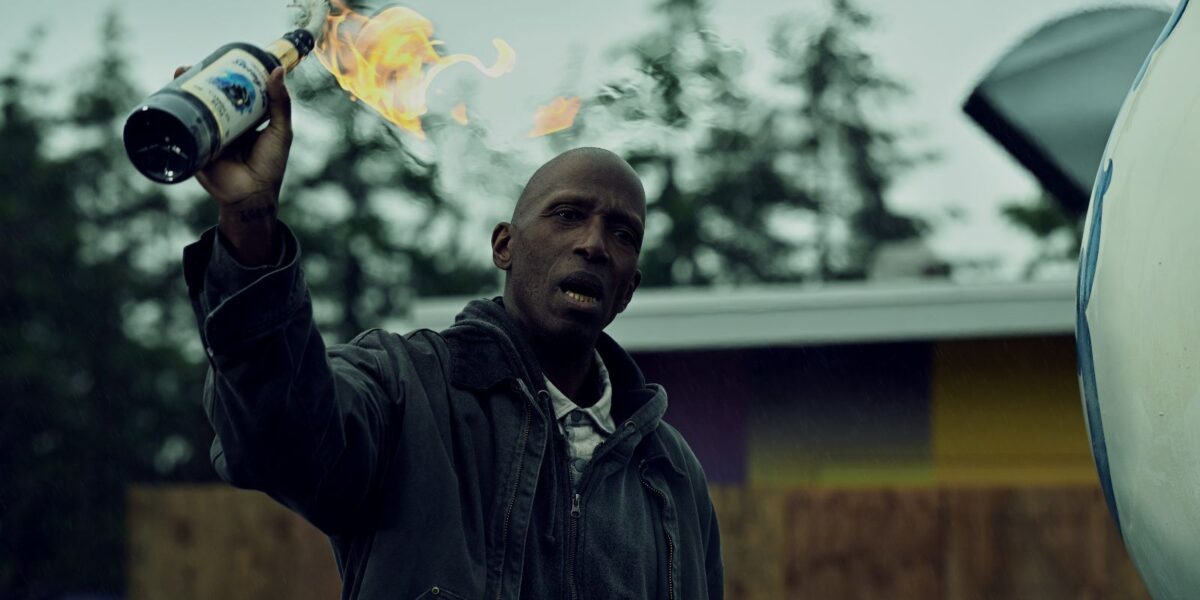
Jena Malone Explains Why ‘Little Death’ Is a Ballsy First Feature
Jan 30, 2024
The Big Picture
“Little Death” is a black comedy directed by Jack Begert, known for his work in music videos. The film explores humanity’s relationship with free will and the struggles of making connections in Hollywood. The cast discusses the unique structure of the film and its punk rock vibe.
At this year’s Sundance Film Festival, the cast and director of black comedy, Little Death, took some time to stop by Collider’s Media Studio to sit down with Editor-in-Chief, Steve Weintraub. Acclaimed music video director, Jack Begert, who’s best known for his work with artists like Jack Harlow, Doja Cat, and Olivia Rodrigo, is taking his style and vision to the big screen with an ensemble roster of talent and an up-close-and-personal look at Hollywood, and the dreamers in its confines.
Starring David Schwimmer, Dominic Fike, Talia Ryder, Travis Bennett, and Jena Malone, Begert’s feature debut film, co-written with Dani Goffstein, boasts a short and sweet logline: “A middle-aged filmmaker on the verge of a breakthrough. Two kids in search of a lost backpack. A small dog a long way from home.” Little Death is an introspective look at humanity’s relationship with the illusion of free will while struggling to make connection when a screenwriter (Schwimmer) has a run-in with two taco truck entrepreneurs (Fike and Ryder) looking for a fix. Begert intermixes his hangout film with AI animation in this oddball comedy.
Some of the film’s stars, Malone, Gaby Hoffmann, and first-time feature actor, Sante Bentivoglio, stopped by our studio, sponsored by Film.io, with Begert. The four of them spoke with Collider’s Steve Weintraub about Begert’s move from short form filmmaking to the set of his first feature, and how he flipped the script on typical narrative structure. Begert shares how this idea has been cooking for over six years, and the cast share why the script and unusual structure appealed to them. Check out the full interview in the video above, or the transcript below, to find out why Malone says Little Death is punk rock, the important and timely message it delivers, and more.
Little Death A middle-aged filmmaker on the verge of a breakthrough. Two kids in search of a lost backpack. A small dog a long way from home. Release Date January 19, 2024 Director Jack Begert Runtime 110 minutes Main Genre Drama Writers Jack Begert , Dani Goffstein
COLLIDER: So I have a million questions for you guys, but obviously I have to start with you, no one watching this will probably have seen the movie yet, so how have you been describing it to friends and family?
JACK BEGERT: That’s been a challenge, for sure. My mom keeps getting mad at me. She’s like, “I need you to give me something to say. When my friends asked me, I don’t know what to say!” I’ve been telling people it’s a movie about perspective and that you’re sort of getting to go on a journey with a couple of different characters in Los Angeles and seeing the different sides of the city through them and their different perspectives.
‘Little Death’ Has Been in the Works for Over 6 Years
Image via Sundance
You’ve directed a lot of music videos and this is your first feature, and I’m just curious, how much did you debate, “What do I want my first feature to be?” Did that go in your head at all, or were you sort of like, “This is the idea that is germinating and this is the one I want to do?”
BEGERT: I think this has been the one for a while. I mean, I’ve been working on a version of this movie for over six years. There wasn’t always a time when I thought it would be my first movie for logistical reasons. It took us a long time to sort of get everything right, and it is sort of a swing of a concept, and I didn’t want to try to take it on prematurely. But yeah, it definitely has a lot of me and my life experience and my co-writer, Dani [Goffstein], in it, and it feels very personal even if it hopefully is universal in a way.
I like throwing a curveball at the beginning of interviews, and this is for all of you guys, if someone has never seen anything you’ve directed or anything you’ve acted in, what is the first thing you’d like them watching and why?
JENA MALONE: This interview! [Laughs] Because why not? I mean, if you haven’t seen anything then enter anywhere. I mean, it’s so abstract. It doesn’t really matter. And storytelling is so transformative. I feel like the shelf life of a film is what I’m so attracted to. Like, the films that I’m influenced by even now are ones that were made 50 years ago, or when I was a teenager. They were the ones that are not directed or made for me, it was the ones that I discovered on happenstance. So, I love the discovery of film and that the audiences have no idea. We don’t know whether this film will be seen by our generation or in 20 years’ generation to come. I love that about filmmaking. So, it’s so sweet.
Sure, but I think it’s also a way of me getting you to talk about a previous performance, or one of those where it’s like, “I really like this one.”
MALONE: Oh, one of those things.
SANTE BENTIVOGLIO: Lucky for me, it doesn’t exist. The short film, but whatever. Focus on this one. Lucky enough, I was able to be a part of it. Jack’s my cousin; we grew up doing a lot of fun, creative things together, and to see it culminate in this is super, super special. He’s a superstar.
Image via Photagonist at the Collider Media Studio
Did you give him five bucks to say that?
BEGERT: Yeah, he’s not even my cousin, man.
BENTIVOGLIO: Hopefully a little more than five.
[Laughs] Right? Is there anything you want to add?
GABY HOFFMANN: Oh, that’s a mean question. I’ll say, the last time I was at Sundance, I came with a movie called Crystal Fairy [& the Magical Cactus], and I had seen it in the director’s living room, Sebastián Silva, who I love very, very much. The film was improv, we made it in 12 days in Chile, and I watched it in his living room and walked home, and I remember my husband and I being like, [sharp inhale] “Okay, well, too bad.” Then I came to Sundance and watched the very same cut a few weeks later and I absolutely loved the movie. I think it’s a fantastic movie. I’m bringing it up not because I think my performance is all that interesting or whatever, but because then we came here and we got to watch the movie in a room with hundreds and hundreds, if not thousands of people. I don’t know, I’m bad with that stuff. It is why being at film festivals is so exciting and powerful, because moviemaking is both a very personal experience, and movie-watching, and a communal one. So the personal, of course, is universal, and so to come together in a theater and you get to experience it, not just through your own lens but through the shared lens of the human experience. Sometimes you need that to reveal your own feelings. So, that will be my choice since it was my last time here.
Related Michael Cera and Director Sebastián Silva Talk CRYSTAL FAIRY, Filming a Realistic Portrayal of a Drug Trip, MAGIC MAGIC, Future Projects, and More Michael Cera and Director Sebastián Silva Talk CRYSTAL FAIRY, Filming a Realistic Portrayal of a Drug Trip, MAGIC MAGIC, Future Projects, and More
You’ve directed a number of cool videos. Is there one in particular that you’d love people to watch if they’ve never seen any?
BEGERT: I don’t know, I feel like I love so many. I don’t think I could pick one. I think because they’re tied to music that I love so much, and I feel like to me, music is like one of the hardest things to kind of rank and quantify. I love a lot of the musicians I’ve gotten to work with and videos I’ve worked on, but I don’t think I would pick one.
I love talking about the editing process because it’s where it all comes together. When you got in the editing room, what were some of the things that maybe surprised you that you didn’t expect, or some of the obstacles you needed to overcome?
BEGERT: I think the main obstacle to overcome is you watch the first assembly cut of your movie and you think, “I will never work again in this town.” I think the big obstacle of being able to get over that and understand that is that thing that you wanted to do is inside of there and you just need to sort of put in the elbow grease. I mean, coming from doing more short form, that was a big learning curve for me and the editing team, Jake [Torchin] and Tyler [Sobel-Mason] and everyone else involved. I’m used to, basically, if I watch a cut and I don’t like it, if it’s a three-minute edit, you can pull two all-nighters and completely re-edit it if you want. With this, you’re, like, pulling five all-nighters and one scene gets a little better. It’s sort of so daunting and so kind of hard to affect actual large change on the thing that you’re working on that you don’t actually see it. You’re doing all this elbow grease and this work for months and then suddenly you do see the change, but it’s so much more gradual because it’s such a longer, bigger, living organism.
Jena Malone Calls ‘Little Death’ Punk Rock: “F*ck hierarchy!”
Image via Photagonist at the Collider Media Studio
I haven’t seen the movie yet, but I did read the press notes and read as much as I could, and one of the things is you talk about how there’s essentially two parts to this film. The first half works a certain way and the second half is a little different. Can you talk about why you wanted to do that, and that tonal shift, if you will?
BEGERT: I think in general, the movie is just taking turns as much as it can, even within the larger shifts that it’s doing. I think it’s kind of trying to swerve in between different genres. You know, it’ll be in one scene this kind of tripped-out, really subjective, crazy inner monologue of somebody, and then within that same story, you’re popping out into this super raw, real, relationship moment in that person’s life. And so even within that, I don’t know, I think it’s my first movie, I just wanted to try to throw as much shit at the wall as I could and feel like I was kind of saying as much as I could at once. I feel like all of it, hopefully, is in dialogue with each other. I hope it doesn’t feel like a scattered thing. I think that I’m proud of the moments where it doesn’t and it all kind of congeals.
I feel like I have a bunch of different passions. I have a passion for this really technical, surreal music video type of filmmaking, and I have another passion that’s the super grounded, kind of very actor, character-focused work on the craft. I feel like I’m trying to always bring them together in this project.
MALONE: You really did. It’s exciting. It’s exciting to watch as an audience member and someone that was working on it. And because it’s such a shift, it’s so punk rock, like to say, “Fuck hierarchy,” where you’ll create characters that you love and then all of a sudden it shifts and you think you know what the lead of this film is, and then you don’t. I think it’s really ballsy and you pulled it off really well.
BEGERT: Thank you so much.
Again, I haven’t seen it, but that sounds a little bit like Richard Linklater’s Slacker, where it weaves.
Why ‘Little Death’ Resonates Today
Image via Photagonist at the Collider Media Studio
Obviously, everyone knows what the conventional narrative structure is of a movie, but that’s just the way it’s been done. It doesn’t mean that’s the way. I really enjoy experimental filmmaking, and what you’re doing with this I’m really excited to see because it’s not what I see all the fucking time. So for the actors, is that one of the reasons you wanted to be a part of a project like this?
HOFFMANN: It just seemed really fun to dive into this wholly unique and juicy, challenging role for me, for really just a few days. I don’t think about things in those terms when I’m reading a script; it’s really instinctual. It’s a gut feeling. I mean, I could talk about the fact that Jack is touching on issues that I think we all need to be thinking about and talking about and that are a part of all of our lived experiences in this moment, and that he did it beautifully and so skillfully and it’s deeply affecting, but when I read the script, I’m just like, “Oh, this is interesting, really well written, and seems like a lot of fun. This guy is wonderful to talk to on the phone. I have a sense he’s going to be wonderful on set.” So, really, it’s just like, “Do I want to put myself in this world with these people?” I’m not thinking about the structure of the film. I’m just, like, ignorant about that shit. But having now watched it, I can really appreciate that it is doing things I’ve never seen done before yet. The overall effect is a sincerely human, emotional, grounded, heartfelt, beautiful experience. So, that’s all we’re ever after. However you can get there, I think is valid.
MALONE: And to kind of piggyback on that, I think that if someone is going to just write something specifically to step out of the normalcy of filmmaking, you can read it, you can see it. It smells. It’s inauthentic. And so I think that even if a film takes you on a journey of breaking convention, when you’re reading it, it shouldn’t break it, right? It’ll bring you in. You won’t realize that you’re breaking convention because it’s going to be lifting you or leading you towards something that is very human. It’ll only be in the aftereffect of reading it, being like, “Oh, there’s all these things happening and you were able to do all of these things.” For me, when I read a script that’s sort of like, “And now, insert strange swirling edit,” it just feels like I’m a computer reading. It doesn’t feel right, you know?
HOFFMANN: You don’t want it to be an intellectual experience. You want it to be an emotional experience, for me, as an actor reading a script. Even if it’s super impressive.
Image via Photagonist at the Collider Media Studio
BENTIVOGLIO: For me, for my first time, as we were saying, I had no idea what was gonna happen. I was on this set, and it was like, “Cut! Your wardrobe, the make-up, let me touch you up, do it again, do it from here, do it from…” And then to see this finished product that is seamless, it tells a story, it just goes through the stages of what it should. Even my own scenes, small ones where he shot it five different ways, and it just blends.
HOFFMANN: Magic!
It’s so funny, because I think if you haven’t spent any time on a movie set or a TV show and seen how the sausage is made, you would not believe the way it is and what ends up on screen and in the editing, how it all cuts together. I’m almost out of time, but I’m curious, with the budget and schedule you had, what were you most afraid of being able to pull off to bring your film to life?
BEGERT: I feel lucky in the sense that, obviously it being my first feature film there was a huge learning curve with a lot of stuff, but I also was coming into this movie probably having spent more time on set than a lot of first-time filmmakers. We just talked about this, that “first-time filmmaker” can mean so many different things. I’ve been shooting music videos and commercials and spending a lot of time on set, and I come from a theater background. I feel like I had a lot of stuff in the arsenal, and I do feel like I was able to use some of my tricks. I’ve shot in every corner of LA over the last 10 years, and so I think being able to use some of those tricks to figure out where to really juice the budget, or where to really spend time in the schedule, I felt very lucky that I was able to kind of bring some of that energy to the table. And everyone involved trusted me. I had to find new ways to work because it was narrative, but I also was able to use some of my little tricks of the trade that I had learned to make things smooth and make it all kind of shake out.
Image via Photagonist at the Collider Media Studio
Last thing for you guys, for everyone, what are you most looking forward to audiences seeing with this film?
MALONE: I’ll go back. Just for me, the eternal shelf life of a film. I love not knowing anything about a film and being affected by something, like watching something in my 20s and thinking it’s this type of film and then watching it again and seeing all of these other things that I had never seen from it. To just be open. I think I would want any audience that I would ever want to watch any film that I’ve ever made to just be curious and to stay open, because if you’ve made something that you’re really proud of, the film will do the work, right? The film is going to do the work for you. It can give you questions, it can give you answers, it can open up deep trauma, it can heal deep trauma. I mean, it’s gonna do the work. You just have to come in sort of curious to go where the film wants you to.
BENTIVOGLIO: For me, I guess, to what you said about your movie and what Jack said about when you first saw the first cut, first thought is, “I hope I’m not an impostor.”
MALONE: We all have that thought. I have before almost every day on set.
BEGERT: For sure!
BENTIVOGLIO: But also, just being super vain, I hope people think it’s funny and laugh and just have fun because I had a lot of fun, and I’m still having a lot of fun. I hope that just carries and we feel that energy in the theater.
HOFFMANN: Well, I’m looking forward to people having this experience because it is a really fun, wild ride. What I think might at first seem like a very cutting analysis and critique, and absurd and funny and terrifying ways of this moment in time, which I think is terrifying in lots of ways, move into the deeper truth, which is that we are all connected by a need for one another and a shared experience of both suffering, but also real love and a real sense of the human true desire for communion. We’ve been kind of tricked into thinking we don’t need that, and that we can be redirected toward pills, and let the pharmaceutical industry profit off of that, or whatever technology. But the move into the deeper truth, that it is all about human connection, is a very beautiful one that this film does very elegantly.
Special thanks to our 2024 partners at Sundance including presenting partner Film.io and supporting partners Pressed Juicery and DragonFly Coffee Roasters.
Publisher: Source link
The Naked Gun Review | Flickreel
Leslie Nielsen underwent an interesting onscreen evolution. Coming from a dramatic background, he became synonymous with the spoof genre after Airplane! and The Naked Gun. Liam Neeson is perhaps the only living actor who could follow in his footsteps. Like…
Jul 30, 2025
Violence Reloaded In The Dark Tale Of A Crime Lord, “MAALIK”!
The Legacy of a Don: Starring Rajkummar Rao (Left) as Deepak a.k.a “Maalik” and Prosenjit Chatterjee (Right) as Superintendent of Police (SP) Prabhu Das “Maalik Paida Nahi Huye To Kya, Ban To Sakte Hain”, meaning “So what if I am…
Jul 30, 2025
The Fantastic Four: First Steps Review
The Fantastic Four: First Steps is the 37th theatrical release in Marvel Studios' billion-dollar franchise, the Marvel Cinematic Universe, and it's coming at a bit of a low point. Marvel has struggled in recent years to reach the heights of…
Jul 30, 2025
As Dave’s Dark Secrets Unravel, One Shocking Confrontation Will Have You on the Edge of Your Seat
Editor's note: The below recap contains spoilers for Smoke Episode 6. After two weeks of intense character work, Apple TV+'s crime drama Smoke has returned to the main investigation through arguably the most important episode thus far. "Manhood" sees Taron…
Jul 29, 2025
